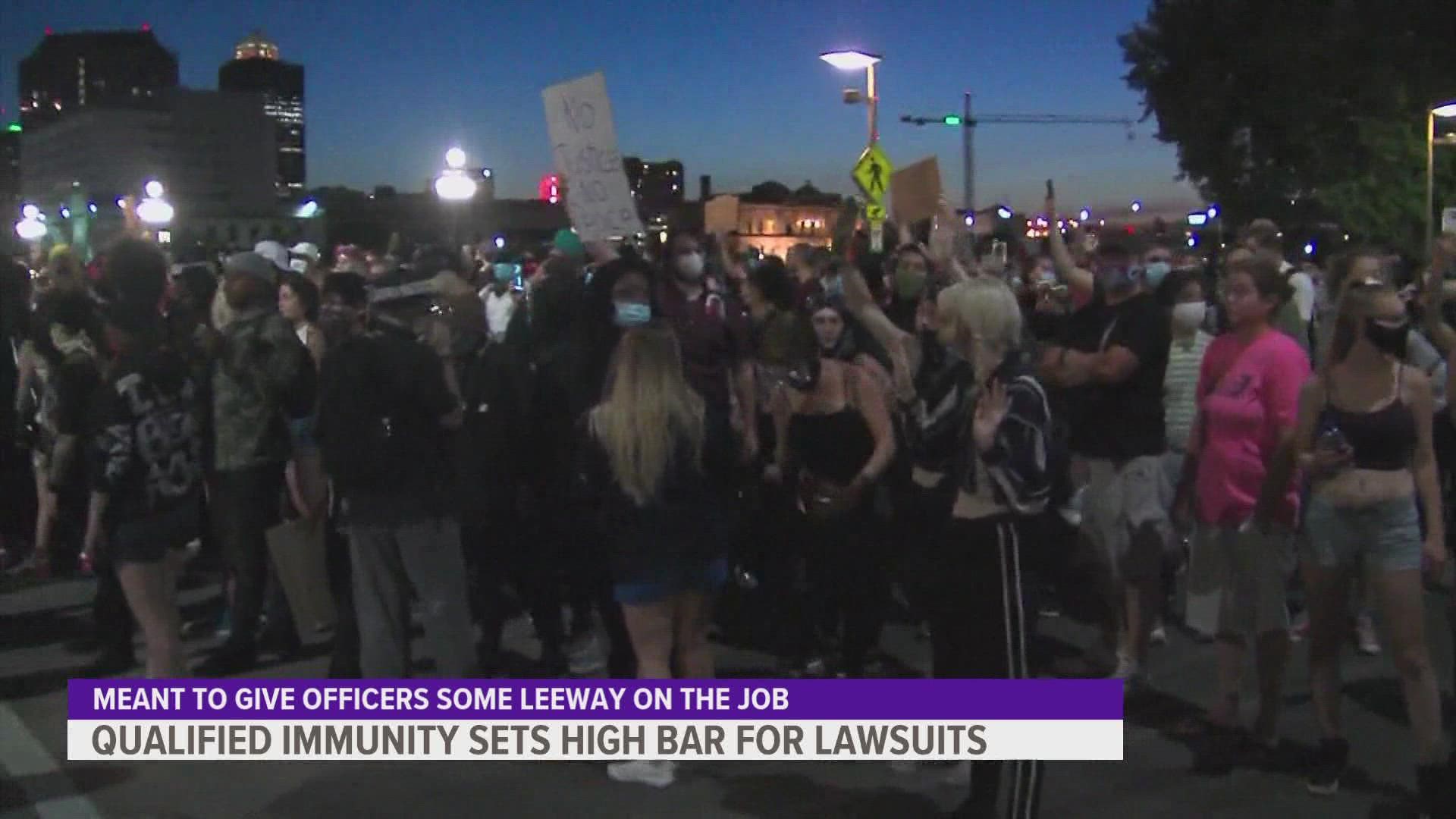DES MOINES, Iowa — An Iowa assistant attorney general is suing the Des Moines Police Department, alleging an officer used excessive force against him during a protest following George Floyd's murder.
Paxton Williams is the latest person to file a suit against DMPD for actions during the 2020 protests, but experts say proving his case — which includes two counts of excessive force against 10 unnamed DMPD officers — could be a tall order.
In the lawsuit, Williams alleges that he attended a peaceful protest on June 1, 2020. After leaving, he went home and was alone outside his home when officers in riot gear approached, pepper sprayed and tackled him. He was then put under arrest.
He spent the night in the Polk County Jail before bailing out the next morning.
Defining excessive force in a case like this can be difficult says attorney Chris Johnston from the Law Group of Iowa.
"There is a certain amount of subjectivity that goes into on that front end to see is it really a violation? Were they really functioning under state law and under the color of law?" Johnston said.
Another factor complicating Williams' case is that, according to experts, successfully suing a police officer can be difficult because of qualified immunity.
According to Attorney Ben Lynch, qualified immunity is intended to give officers some legal discretion to perform their duties on the job.
"In order to prevail in a case against police officers, you have to be able to prove a little bit, usually, a higher standard than just suing a regular old person on the street," Lynch said.
Both lawyers agreed that, because of qualified immunity, proving Williams' case could be difficult — but victory is certainly not out of the question.
"If the same situation happened to me or a friend or anyone who came to me, it's a case that I would have taken on," Johnston said.
Lynch said that, if the police officers did something wrong to Williams, they need to be held accountable.
"I think this type of litigation is very important," he said.
According to court documents, Williams' original citation from the night of the protests was eventually dismissed due to a deferred prosecution agreement.
As of July 12, DMPD declined to comment on the lawsuit, and Williams could not be reached.

